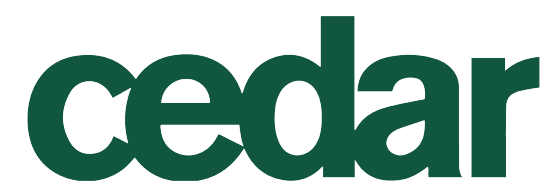ESG: The Rising Business-Critical Priority for Procurement
For senior procurement leaders, ESG is no longer a nice-to-have, it is a defining priority. What was once a niche concern has moved to the centre of procurement strategy, driven by new regulations, shifting customer expectations, and increased investor scrutiny. Procurement teams are on the front line of building ethical, sustainable supply chains that protect both brand and bottom line.
This blog explores why ESG has become business-critical, how procurement functions are embedding it into sourcing decisions, and the skills and leadership traits now required. It also shows how Cedar supports organisations in sourcing ESG-savvy procurement professionals, both interim and permanent, to lead the way.
Why ESG Is Now Central to Procurement
A confluence of external pressures has made ESG a strategic imperative for procurement:
- Regulation is ramping up.
The EU’s Corporate Sustainability Reporting Directive (CSRD) and upcoming supply chain due diligence laws now compel companies to collect and disclose ESG data across supplier networks. According to a Thomson Reuters report, 80% of businesses cited regulatory requirements as the primary driver for ESG data collection from suppliers. - Customers are voting with their wallets.
Consumer and B2B clients increasingly demand sustainable sourcing. Deloitte’s 2024 Sustainable Supply Chain report found that 77% of companies see growing demand for responsible supply chains. ESG is now a factor in supplier choice, not just price and quality. - Investors are applying pressure.
Sustainability is now on the radar of investors and boards. In KPMG’s Global Procurement Survey, 66% of procurement leaders said ESG and regulatory demands will significantly influence sourcing strategy over the next 3–5 years. - Reputation is on the line.
Brand damage from ESG failures in the supply chain, such as unsafe labour practices or deforestation links, can be swift and severe. According to Procurement Magazine, leading companies now view ESG as both a shield and differentiator in managing reputational risk.
The message is clear: ESG is not an optional extra. It must be embedded directly into procurement strategy and decision-making.
Embedding ESG in Procurement Practice
Forward-thinking procurement teams are actively integrating ESG across policies, processes, and platforms:
Supplier ESG Criteria
Many organisations now evaluate vendors on ESG performance, not just cost and delivery. Supplier codes of conduct, ESG scorecards, and sustainability questionnaires are becoming standard in RFPs. McKinsey highlights that top CPOs are linking sourcing decisions to Scope 3 emissions targets and ethical sourcing benchmarks.
End-to-End Visibility
The ability to monitor ESG risks throughout the supply chain is essential, including Tier 2 and 3 suppliers. Teams are investing in data platforms, supplier audits, and tools that provide real-time ESG analytics. As IBM’s procurement team noted in Procurement Magazine, a single “source of truth” is key to tracking ESG performance.
Collaborative Supplier Relationships
Rather than take a compliance-first approach, many procurement leaders are partnering with suppliers to improve ESG outcomes. This includes joint innovation to reduce waste, training on responsible sourcing, or performance-based incentives. According to Ardent Partners, 64% of CPOs plan to expand supplier engagement on ESG.
Balancing ESG and Cost
ESG investments can yield operational and reputational ROI. While sustainable materials or ethical production might increase unit costs, total cost of ownership models often reveal long-term savings, through risk avoidance, customer loyalty, and process efficiencies. As Deloitte’s Jiří Pavlík explains, ESG can be a lever for innovation and growth, not just compliance.
Skills and Leadership for ESG in Procurement
Delivering ESG outcomes in procurement isn’t just about policy. It requires a new calibre of leadership, professionals who can blend sustainability with commercial acumen.
Strategic Thinking
Leaders must move beyond cost-cutting and take a long-term view, aligning ESG strategy with broader business goals. Scenario planning for climate risk, net-zero targets, and due diligence frameworks must be part of the roadmap.
Technical ESG Literacy
Procurement professionals need fluency in environmental, social, and governance indicators, from carbon emissions to labour standards. Familiarity with global frameworks such as GRI, SASB, and CSRD is increasingly expected.
Cross-Functional Influence
ESG in procurement is a team sport. Success requires collaboration with finance, legal, and sustainability leads, as well as the ability to influence suppliers and internal stakeholders. Communication, persuasion, and change management skills are vital.
Innovation and Agility
Embedding ESG involves rethinking processes, qualifying new suppliers, and testing new tools. Agile leaders who can pilot, scale, and adapt quickly are best positioned to deliver meaningful results.
Accountability and Integrity
Procurement must lead by example. Strong ESG leaders set the tone for ethical behaviour across the function, and ensure transparency and progress tracking are woven into performance measures and supplier scorecards.
The Value of ESG-Led Procurement
Done well, ESG integration in procurement delivers measurable business value:
- Risk Management: ESG due diligence reduces exposure to supply chain shocks, reputational damage, and regulatory fines. According to Axidio, 85% of investors say ESG-aligned companies are more resilient.
- Brand Strength: Responsible sourcing boosts customer trust and brand equity. Thomson Reuters reports that companies prioritising ESG in supplier selection consistently see reputational gains.
- Cost Optimisation: ESG often unlocks efficiency. From reducing energy usage to streamlining waste management, sustainability measures can generate significant savings over time. Focal Point found that businesses using ESG data platforms also reported higher profitability.
- Competitive Advantage: As Deloitte notes, up to 83% of large companies now view ESG as a source of competitive edge in procurement. Sustainable procurement is no longer a differentiator, it’s a baseline for leadership.
Building ESG-Capable Procurement Teams with Cedar
To meet rising ESG demands, companies need the right procurement talent. That’s where Cedar supports.
Since 2016, Cedar has partnered with private-sector clients across the UK and Europe to recruit high-impact procurement professionals. Our Procurement division specialises in sourcing talent with both commercial rigour and ESG fluency, from Procurement Directors driving responsible sourcing strategy, to Category Managers experienced in supplier diversity and carbon tracking.
We offer both permanent and interim solutions:
- Executive Search for ESG-focused leadership roles
- Interim Procurement Experts for time-critical projects or transformation
- Contingent Recruitment for scaling ESG supplier initiatives
- Market Insights & Advisory on procurement team structures and in-demand ESG skillsets
Whether you’re embedding ESG into BAU or launching a dedicated programme, we’ll help you build a team that delivers, today and tomorrow.
Final Thoughts
In today’s business climate, procurement is expected to deliver more than savings. It must drive sustainability, ethics, and resilience, and that means ESG is now a core capability, not an optional extra.
Forward-looking procurement leaders are embedding ESG into the DNA of their function, equipping teams with the skills, systems and partnerships to create value across people, planet and profit. Those who succeed will protect their brand, sharpen their competitive edge, and unlock innovation.
If you’re scaling your ESG agenda, Cedar is here to support you, with the talent, insights and network to build procurement teams fit for a sustainable future.


